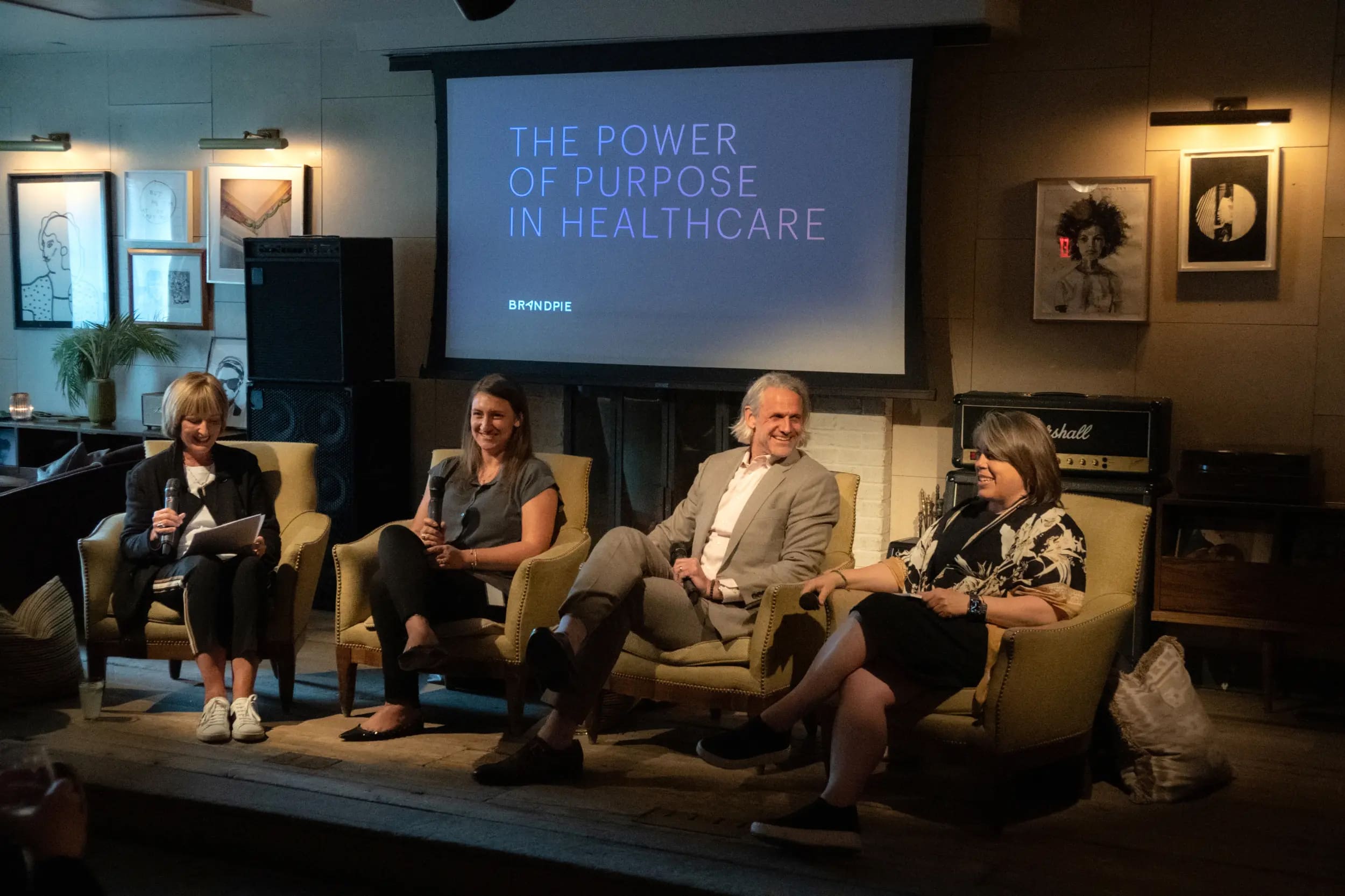Insight
The power of purpose in healthcare
Brandpie’s CEO (US), MaryLee Sachs, reflects on the importance of being purpose-led in the healthcare industry, with findings from our Power of Purpose event

What healthcare company doesn’t claim to put patients first? It’s table stakes. But it’s also not differentiating since everyone in the healthcare space seems to make the claim.
A key finding from our fourth annual study of CEOs on Purpose showed that different sectors want their purpose to do different things. When we asked CEOs how they measured their organization’s performance against their purpose, the top three responses were sales and growth, customer satisfaction, and financial performance. The impact of purpose is most certainly being measured by its influence on the bottom line.
However, the picture is a bit more complex and human in the healthcare, space where it’s much more about employee engagement – being a ‘good place to work’ came in at 38% versus an average of 27%.
This couldn’t be more true for ScionHealth. At a recent panel discussion among executives in the healthcare sector on the ‘power of purpose’, Lisa Estrada, ScionHealth’s Chief Administrative Office & General Counsel, said: “Purpose and rallying around the purpose has been the thing that allows us to think differently about ScionHealth as a company. Whereas every healthcare company will say that it’s about the patients, we started this company in the midst of one of the worst clinical staffing crises that maybe we’ll ever see [Covid]….We’re here to empower the clinical people. So our purpose statement is ‘Empowering the hands that heal’, and we focus it very much on the role that we play vis-a-vis the people who are delivering care.”
The thinking is simple. Empowering the care givers results in them being able to provide the best care to the patients. And more.
“Having the purpose statement or the purpose idea, to look at health tech investment and acquisition opportunities through that lens has been really, really helpful, because there are so many of them, and there’s so many new ones out there. But saying, ‘These are the ones we want to make ours because they align with our purpose’ has been a powerful tool,” Estrada continued.
ScionHealth was born from two organizations coming together in the midst of the pandemic in 2021.
Another new organization resulting from a merger in 2022, FORVIS, created a firm-wide purpose. According to Kevin Locke, FORVIS Managing Principal of Healthcare Consulting, “When we merged [two legacy organizations], we were very intentional about defining a purpose statement on behalf of the new firm. So it was a really energizing time for the new firm to rally around a stake in the ground that said ‘This is why we exist’.”

While its purpose is not specific to its healthcare consulting business, Locke acknowledges that in the healthcare sector, “We all need to continue to push ourselves, our organizations, the industry toward adopting a more courageous mentality around why we do what we do and assume that when we do it right, the economics are going to take care of themselves.”
As a disruptor in the healthcare insurance sector, Oscar appeared to be purposeful from the get-go. “The mission of the company has been the anchor for everything that we do. It’s why people come to work at Oscar. It’s why people stay when it gets really challenging,” said Rebecca Krouse, Oscar’s Chief People Officer.
“There’s a lot of people at the table with a lot of thoughts. Maybe if we move away from more hierarchical systems and we empower different people,…my guess is you get some really good thought,” Krouse continued.
Refreshing thinking from business leaders in healthcare which was probably the most disrupted business sector since the advent of the pandemic. And five key learnings from our panel discussion:
Use purpose to empower your people (employees and stakeholders) to act.
Link your brand to business strategy, purpose and culture.
Use purpose to positively influence the motivations, behaviors and choices of your people.
Ensure culture is central and not a side show.
Be bold in your ambitions.
Reposted from: https://www.linkedin.com/pulse…
Share this page


